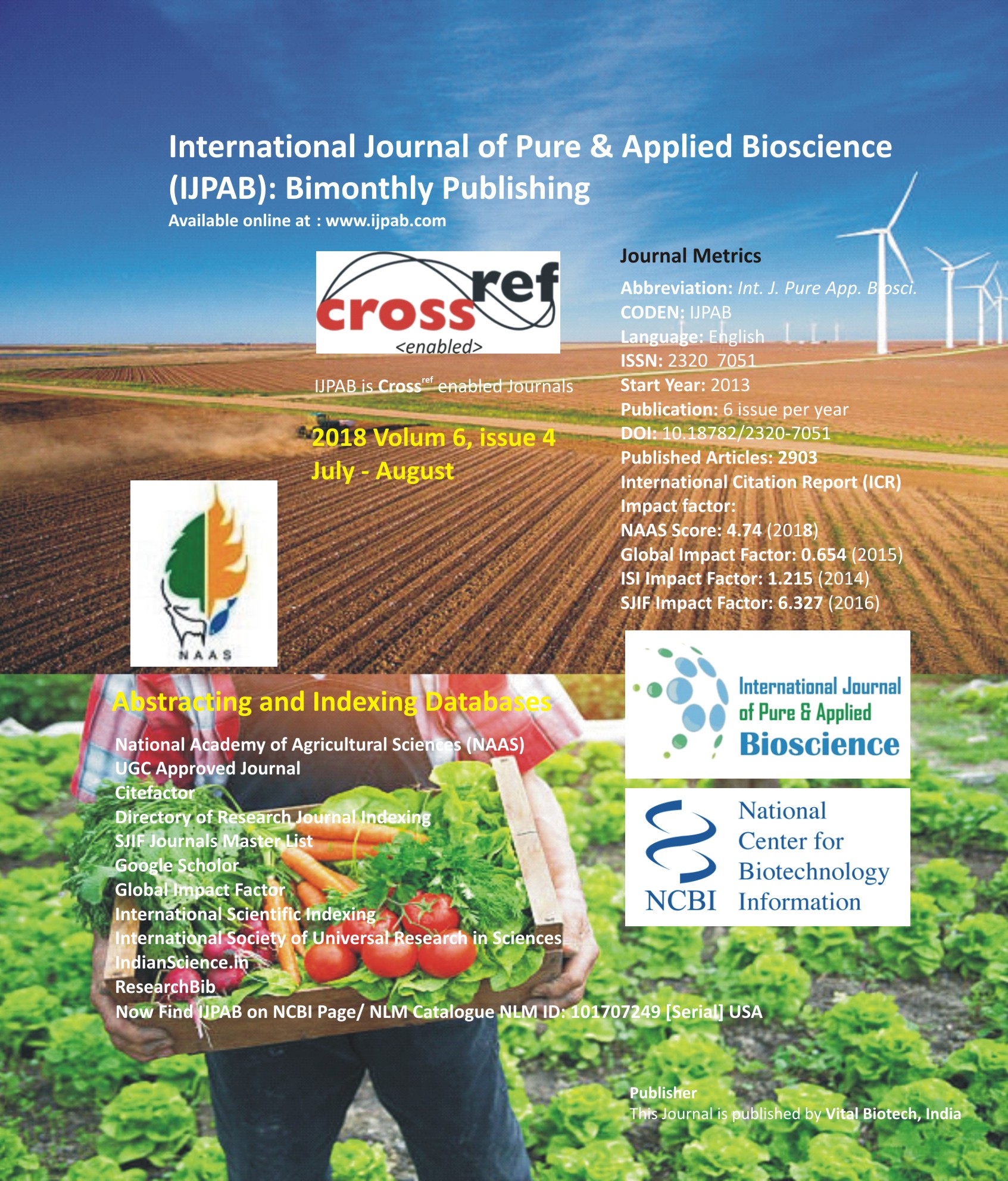
-
No. 772, Basant Vihar, Kota
Rajasthan-324009 India
-
Call Us On
+91 9784677044
-
Mail Us @
editor@ijpab.com
International Journal of Pure & Applied Bioscience (IJPAB)
Year : 2018, Volume : 6, Issue : 4
First page : (671) Last page : (677)
Article doi: : http://dx.doi.org/10.18782/2320-6724
Recent Advances in Woolliness Management in Peach Fruit: A Review
Kuldeep Singh1*, Nitin P.S.1, Pradeep Kumar2, Gururaj Mathapati2 and Ajay Kumar3
1Division of Fruits and Horticultural Technology,
2Division of Vegetable Science,
3Division of Microbiology,
ICAR-IARI, New Delhi 110012, India
*Corresponding Author E-mail: k.chauhan457@gmail.com
Received: 15.07.2018 | Revised: 19.08.2018 | Accepted: 26.08.2018
ABSTRACT
Peaches and nectarines are susceptible to wooliness, a form of chilling injury. It manifests as a lack of juiciness and a dry woolly or leathery texture of the fruit flesh which reduces the shelf life of fruit during cold storage. Wooliness can be alleviated by pre-harvest methods such as application of gibberellins and hexanal formulations, by post-harvest methods such as heat treatment, low temperature conditioning, controlled atmosphere storage (CAS) and application of different chemical melatonin application, 1-methylcyclopropene (1-MCP), oxalic acid, glycine betaine, methyl jasmonate (MeJA), salicylic acid (SA), and nitric oxide. Gibberellin delays the onset of climacteric respiration and ripening cycle. Hexanal application inhibits the enzyme responsible for fruit deterioration and improves fruit firmness. Increase in ethylene production causes chilling injury in fruits, heat treatment and application of 1-MCP inhibit ethylene application. LTC treatment increases the content of ATP and enhances activities of energy metabolism enzymes. The combined treatment of low temperature conditioning (LTC) and MeJA inhibit the activities of PPO and POX while induced the activities of antioxidant enzymes. CAS treatment reduces the activities of endo-PG, exo-PG activities and PME activity; and increasing activities of antioxidant enzymes, and reducing MDA content. Glycine betaine (GB) treatment enhances the accumulation of endogenous GB, γ-aminobutyric acid (GABA), and proline contents. This enhances chilling tolerance in peach fruits and reduces wooliness.
Key words: Chilling injury, Peach, Pre-harvest treatment and Post-harvest treatment, Wooliness
Full Text : PDF; Journal doi : http://dx.doi.org/10.18782
Cite this article: Singh, K., Nitin P.S., Kumar, P., Mathapati, G. and Kumar, A., Recent Advances in Woolliness Management in Peach Fruit: A Review, Int. J. Pure App. Biosci.6(4): 671-677 (2018). doi: http://dx.doi.org/10.18782/2320-7051.6724

